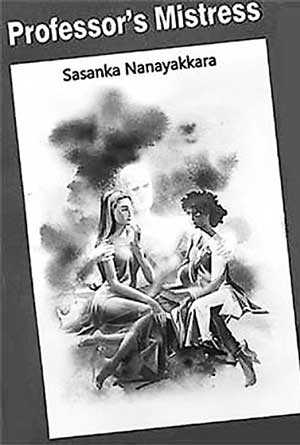Thursday Mar 05, 2026
Thursday Mar 05, 2026
Saturday, 7 March 2020 00:02 - - {{hitsCtrl.values.hits}}
 Literary critics as well as literary historians point out that short story is as old as any literary form and most have existed for thousands of years before the art of writing was known. It is believed that stories of gods and demons, accounts of human experiences had helped develop the narrative form which in turn is known as a subject called narratology.
Literary critics as well as literary historians point out that short story is as old as any literary form and most have existed for thousands of years before the art of writing was known. It is believed that stories of gods and demons, accounts of human experiences had helped develop the narrative form which in turn is known as a subject called narratology.
Over the years, the art of writing short story has changed.
The skilled writers select their own modes of expression. Some choose a plot or a story outline, whereas some others opt for either dialogues or monologues. There have been some guidelines in the writing of the short story as a literary genre. But that too has changed with the advent of the media channels like radio, television, newspaper and periodicals.
The human-interest side of the writing process has remained despite the advent of these media. Most skilful creative writers tend to utilise the expression of human situations and/or human lively moments over and above mere storytelling. In this direction, the emergence of a form of experimental writing is observed. The modern short story writer is influenced by their own living conditions and cultural traits.
They too are influenced by certain socio-political forces. At times the discerning reader has a wide range of short stories to read. There have been masters in the art of short story writing.
They include Leo Tolstoy, Anton Chekhov and Maxim Gorky from Russia, Guy de Maupassant, Voltaire and Gustave Flaubert from France, O. Henry and Ernest Hemingway from America, Doris Lessing and D.H. Lawrence from Great Britain. We cannot undermine some names of creative writers like R.K. Narayan and Rabindranath Tagore from the orient. As I read on the short stories written by Sasanka Nanayakkara, titled as ‘Professor’s Mistress,’ a collection of 18 narratives, I felt certain freshness in the interpretative quality. Nanayakkara is gifted with an open mind brimming with sensitive observation and a penetrative presentation.
As a sensitive creator of human situations, the short story writer takes the reader from ‘known’ to ‘unknown’ areas of a hidden sphere. He has shown much linguistic skills in the creative communication moods, which presumably transcends the mere expression. In most narratives, the reader is made to immerse in various forms of human socio-cultural and socio-political issues with an ultimate vision of a ‘wisdom’ born out of a reading ‘delight’.
Most human experiences of these narratives are not at all alien to the reader. They embrace a certain degree of a lively humane flavour. I do not want to single out one or two examples. But I sincerely feel the advent of a creative and resourceful Sri Lankan writer.
– Professor Sunanda Mahendra